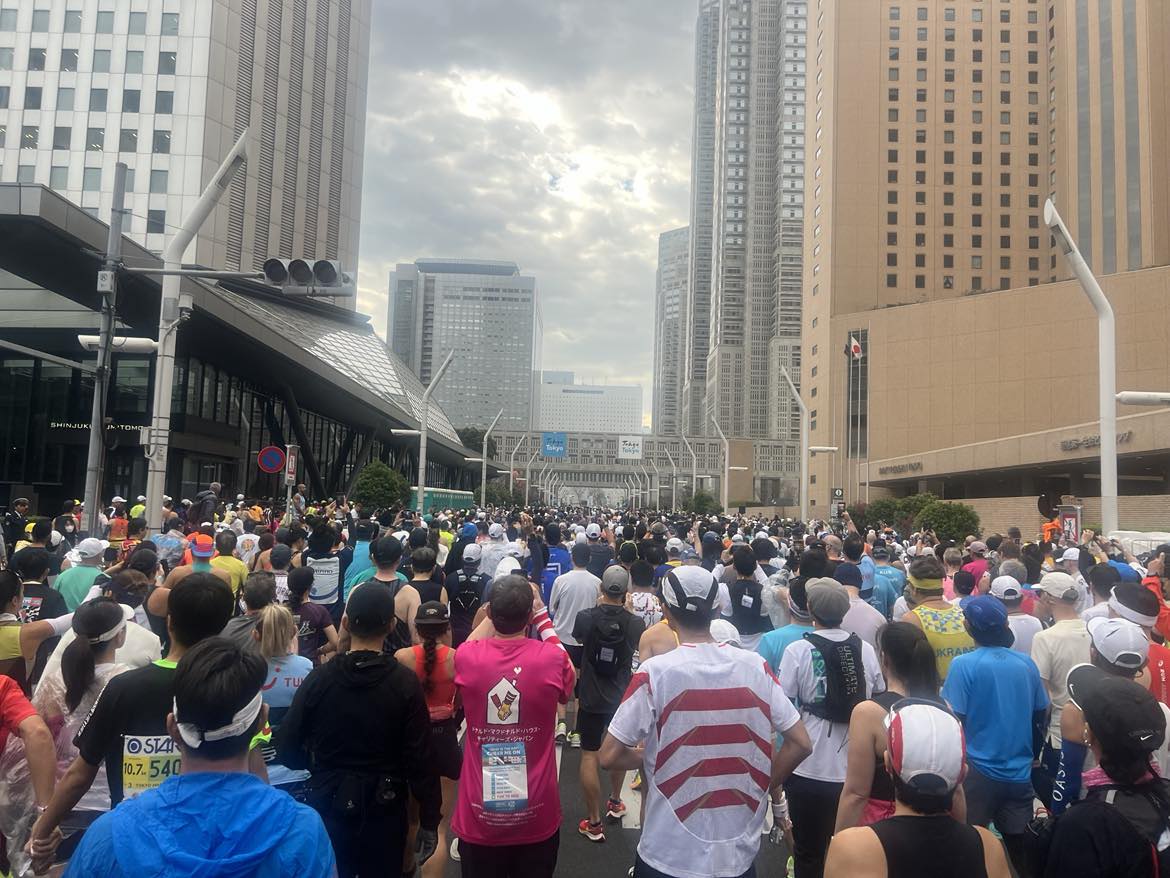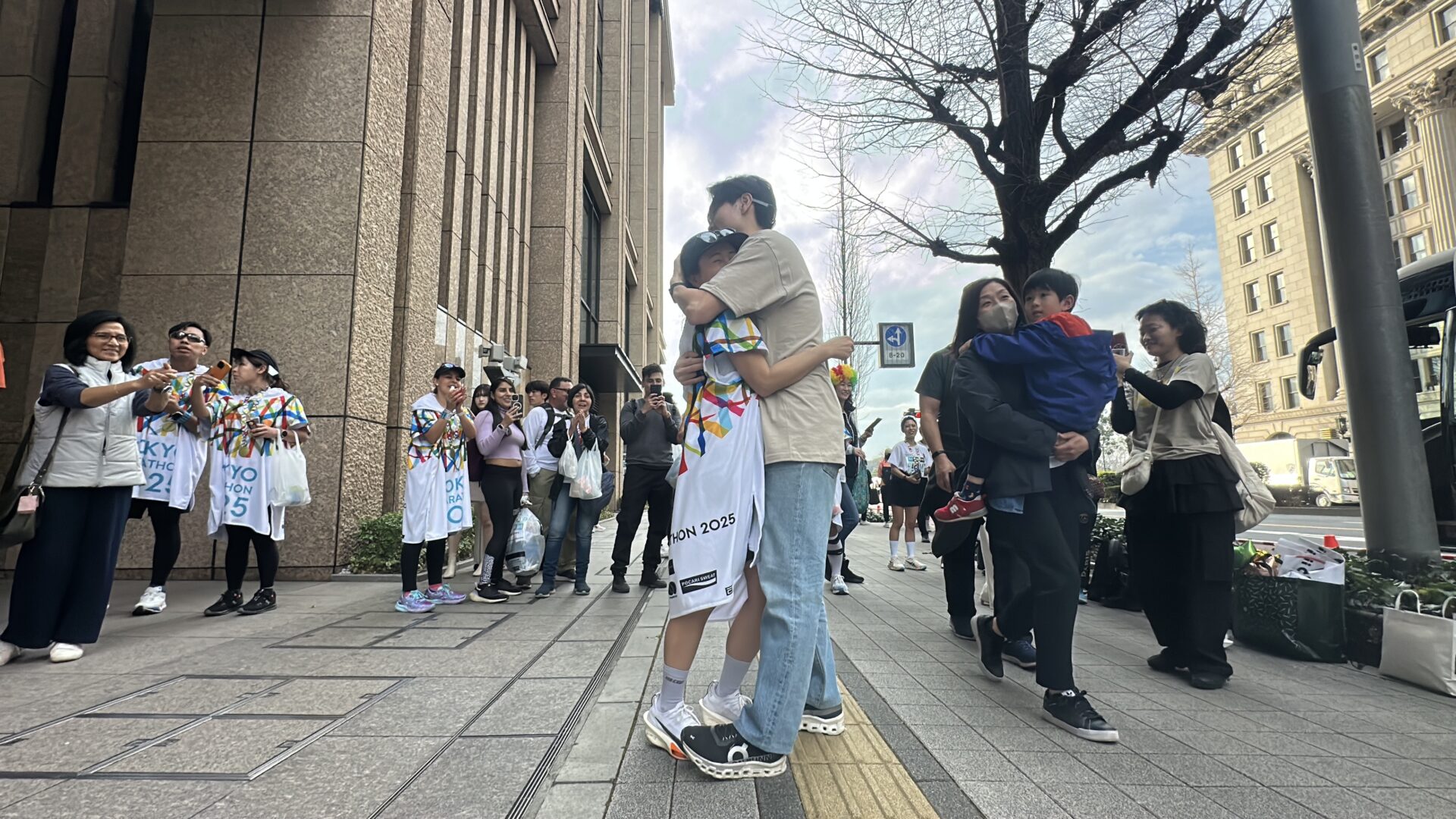Interview Relay
42 Stories of the Tokyo Marathon
〜Connecting Hearts〜
My Tokyo Marathon is…?Raising the appeal of sports with people
- Supporters
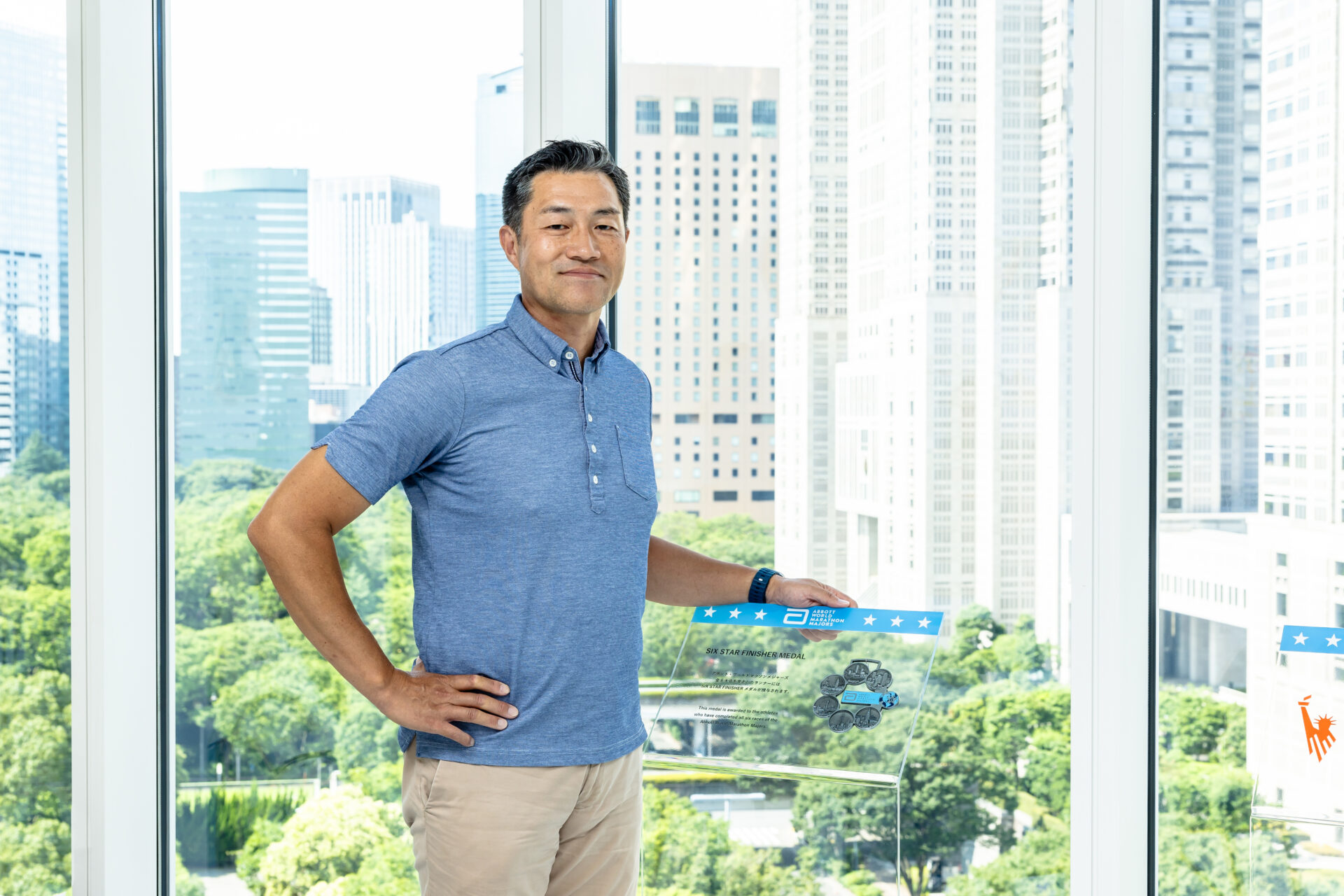
Interview Relay: 42 Stories of the Tokyo Marathon ~Connecting Hearts~
Introducing the Race Director of the Tokyo Marathon Foundation, Yasuhiro Oshima.
What are the appealing points and values of the Tokyo Marathon from the perspective of the Race Director? He talks about how he sees his role as a stage producer and drives the race experience. He will share about the Tokyo Marathon experience and touch on the thinking leading up to the milestone 20th anniversary in 2027.
Oshima has wide experience in event organization, successfully delivering events at the Japan Association of Athletics Federations and the Tokyo Organizing Committee of the Olympic and Paralympic Games (Tokyo 2020)
–Referring to your experience before how you came to join the Tokyo Marathon as Race Director in 2024?
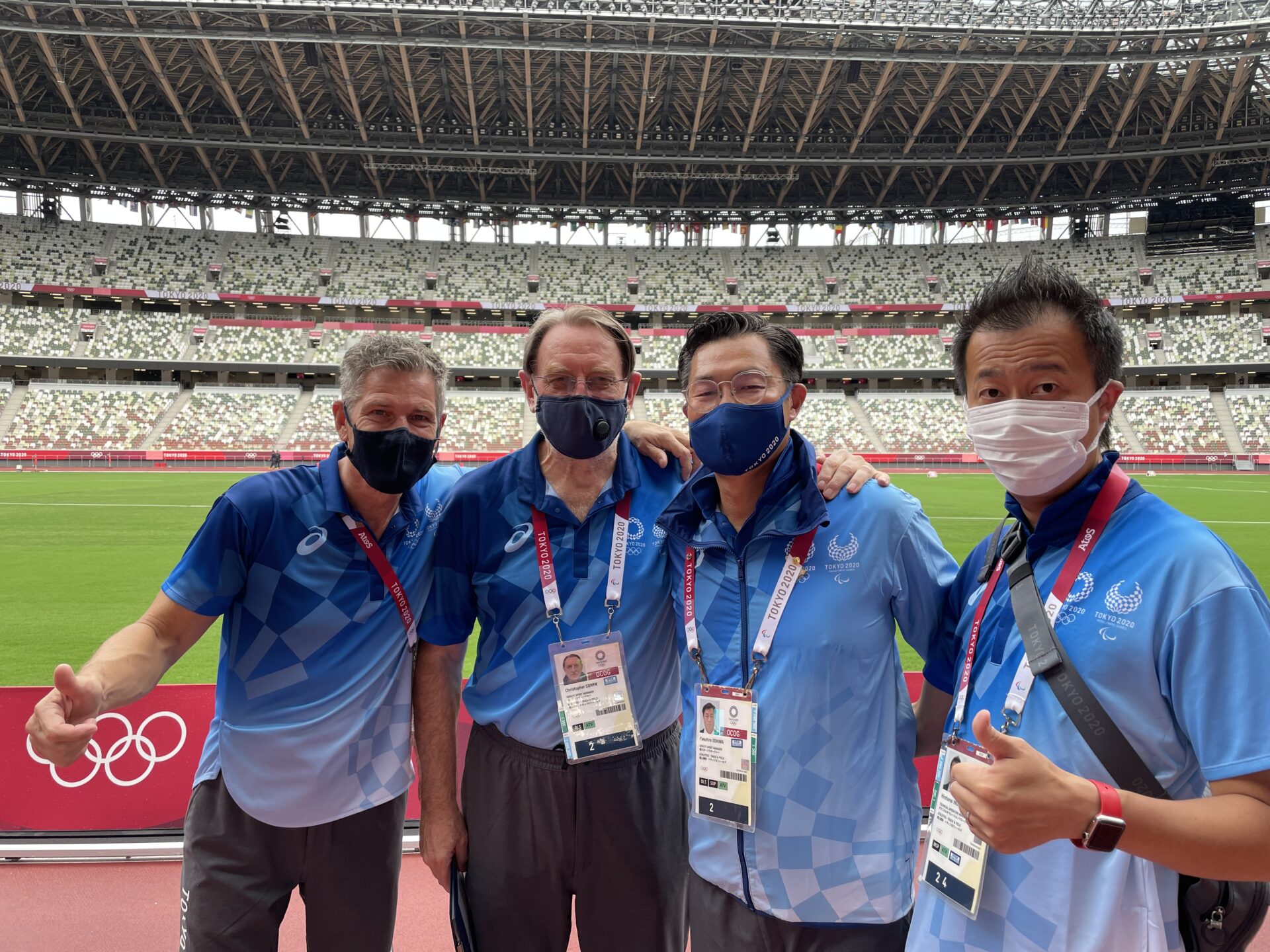
My previous role was with the Japan Association of Athletics Federations (JAAF), I was the business division manager in charge of marketing and competition business. I was in charge of developing the concept, promotions and organization of the Marathon Grand Championship (MGC), the organization of the Saitama Marathon, and the switch to mass-participation of the Chiba Cross Country. In 2019, I was seconded from JAAF to the Tokyo Organizing Committee of the Olympic and Paralympic Games, where I was in charge of selecting the marathon course after having gone through tough negotiations with the International Olympic Committee (IOC) and World Athletics which ended with the marathon and race-walk competitions were relocated to Sapporo. Bringing new thinking to the events and successfully bringing the vision to fruition for the runners are my proudest career moments and main achievements. The Tokyo Marathon Chairman, Tad Hayano, and I had worked together previously and he recognized these achievements and invited me to succeed him as Race Director.
–What was your impression of the Tokyo Marathon before becoming its Race Director?
I had always recognized it as the largest in terms of its scale, of all sporting events, including track and field, held in Japan. It stands out in Japan, as an international competition for elite runners, as an interactive sports event for all, and as an event involving society through various charity and volunteer activities. As part of my role at JAAF, there was a time when I concurrently served as a Director of the Tokyo Marathon Foundation, so I was aware of the various projects. I have come to believe that the Tokyo Marathon is in a unique position as an event that could raise the value of sports for Japanese people in general through the concerted effort of the Tokyo Marathon Foundation.
A stage where everyone involved would feel, “So happy!”
–Now that you have been appointed as Race Director, what do you think is the appeal of the Tokyo Marathon?
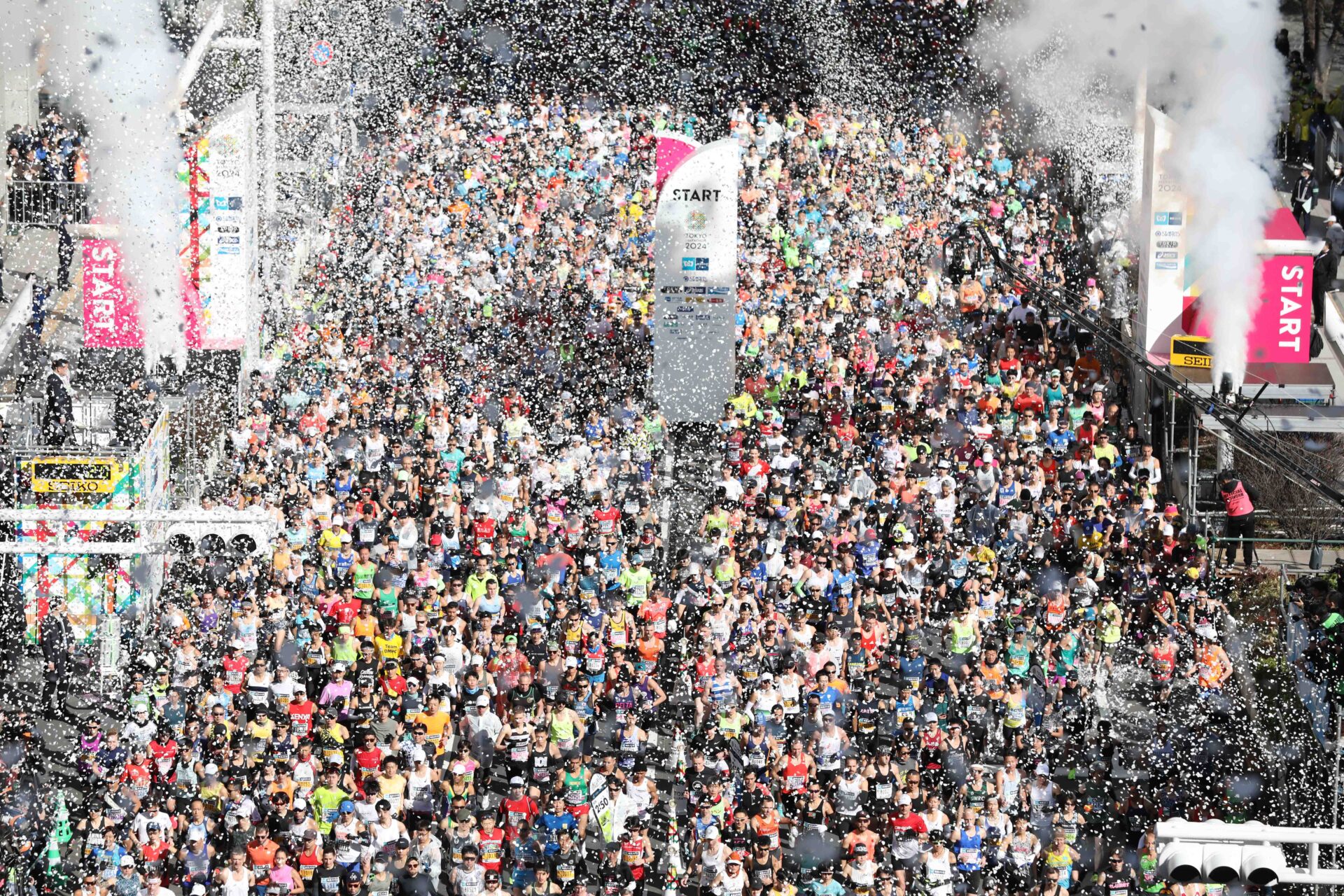
So Top of my list is that the Tokyo Marathon is one of the world’s top marathon races, a competition that world records are made by both male and female runners, and is sought out by the the highest level of runners from all over the world. And on this course, after the starter gun signals the official start, a wide range of “citizen” runners, can run the exact same course. In the most recent race, approximately 15,000 runners from overseas joined, enjoying running through Tokyo. For me, this is the best part, when people from all over the world are together in the hope of achieving their own goals and objectives, and everyone can play the leading role of “The Day We Unite,” along with the support from the sidelines and volunteers.
–What is the role of Race Director, and what is the your vision for the role of Tokyo Marathon’s Race Director?
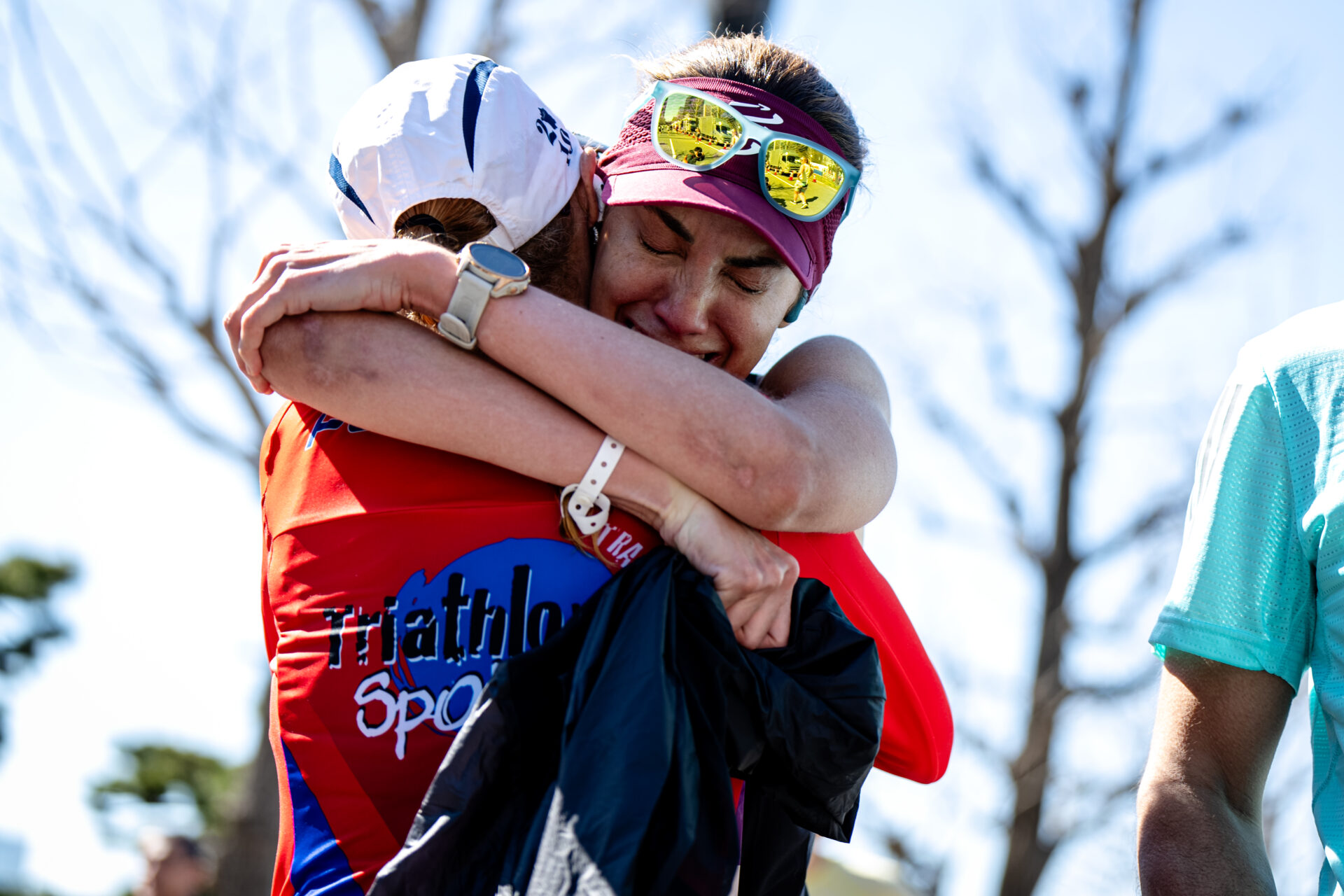
It is important to organize and operate the event so that expectations of everyone involved in the Tokyo Marathon can be fulfilled and therefore, they can have a sense of accomplishment. The Tokyo Marathon has been recognized by many people as the safest and most secure race in the world. From now on, in addition to the safety and security, we are developing ideas so that everyone involved would be able to feel a sense of accomplishment from being part of the event. I would like to be a leader in the organization that creates a stage where everyone involved in the Tokyo Marathon, including the athletes aiming for the world record, all 38,000 runners who made it to the start line, the volunteers, the people cheering along the road, and the local residents, can think, “So happy we have the Tokyo Marathon!”
–What are the unique features of the elite race and how is it different from other competitions?
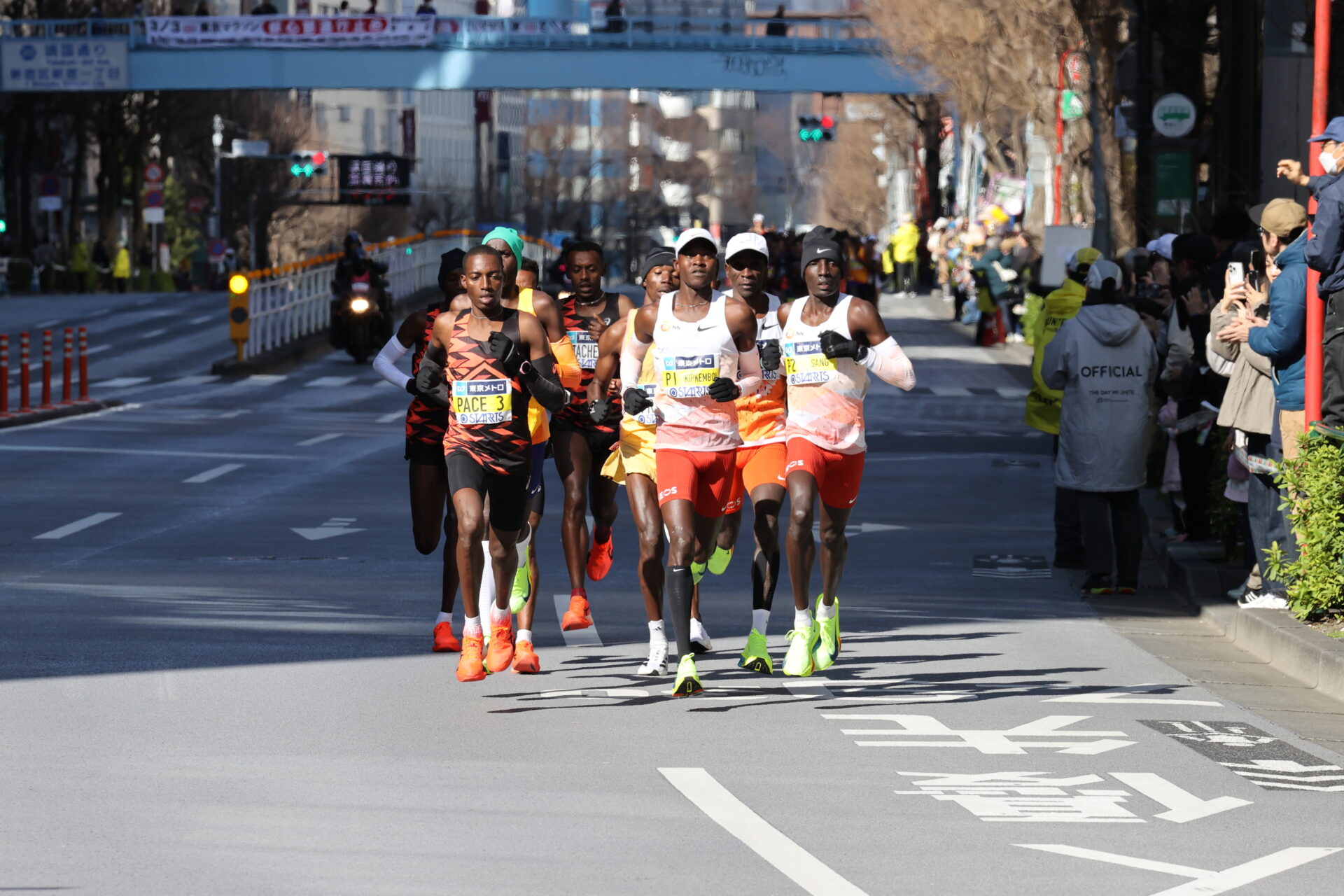
The Tokyo Marathon is held on the first Sunday of March every year. It is about five to six months before their most important races of the year, such as the World Athletics Championships and the Olympics, where athletes aim to “win.” With this as background, many athletes join Tokyo with clear goals of wanting to try breaking a record in Tokyo. For athletes who switch from track to marathon and extend a running distance, it is also a good timing. Many succeed in the switch, but if they try the Tokyo Marathon but end up not succeeding, they can still return to the track and try there to qualify for those big events. Therefore, it is no exaggeration to say that it is an authentic marathon race where elite runners actively and boldly challenge their records and dreams, and super elite runners who aim to win medals at the Olympics and the World Athletics Championships treat the Tokyo Marathon as an important and serious step toward those goals.
Place/opportunity where people can set the next goal
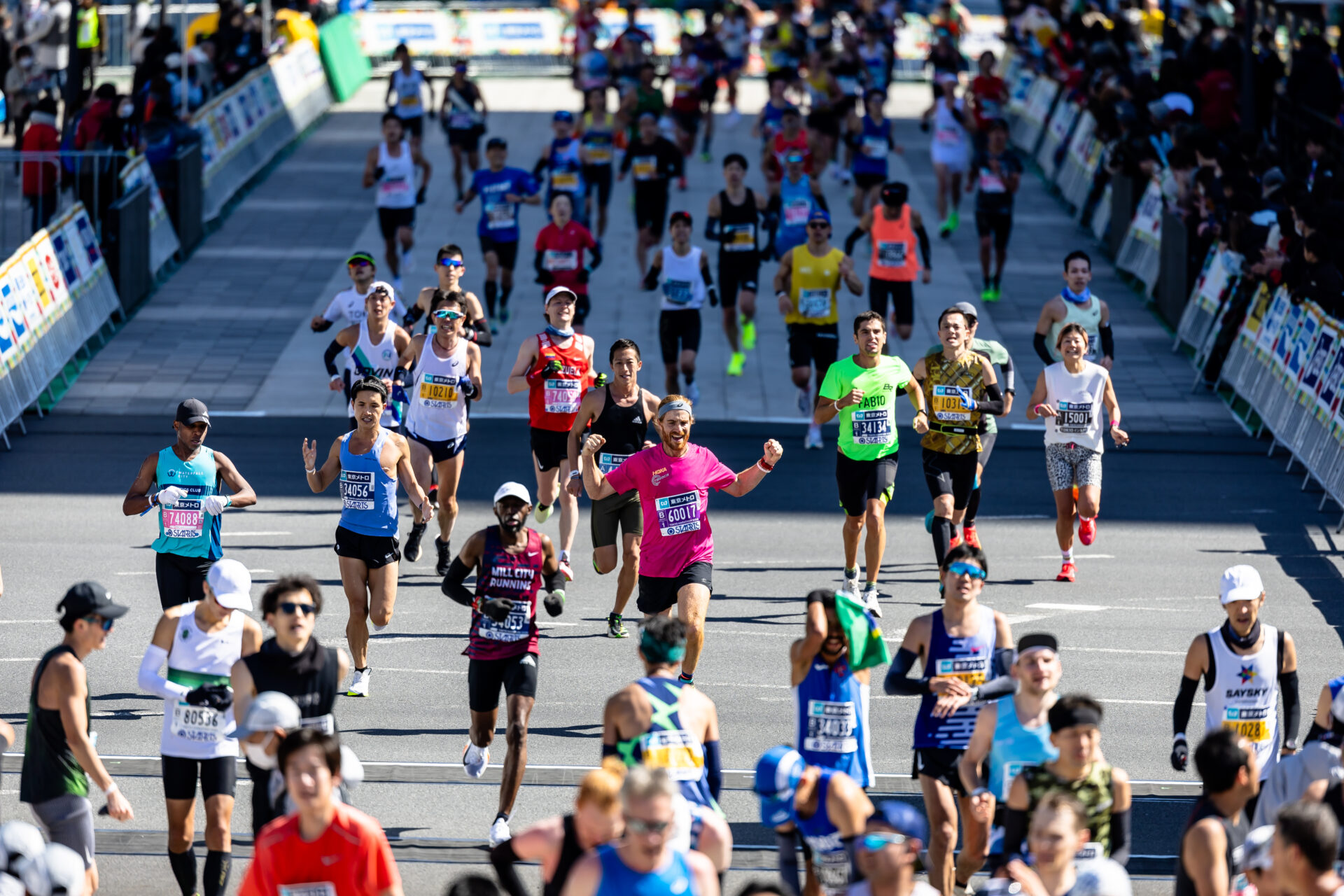
–What is the value and role of the Tokyo Marathon, for Tokyo and the city of Tokyo?
Tokyo is one of the most recognised “Global Cities” along with others such as New York, London, Paris. The fact that the Tokyo Marathon, which is the world’s top marathon as well as one of the Abbott World Marathon Majors is held in Tokyo, not only serves as an interactive sporting event, but it also contributes to the enhancement of the branding of the city of Tokyo around the world. It produces economic benefits that can be seen in numbers as well as social benefits, such as raising people’s sense of pride in the city, resulting in both tangible and intangible effects. In addition, the Tokyo Marathon which started in 2007, has been serving as a model for mass marathon events in Japan which have now spread throughout Japan. I believe these are the key contributions and value of the Tokyo Marathon.
–What is the value of the Tokyo Marathon for elite runners, citizen runners, and volunteers?
Each participant joins the race with their own goals and purpose, and the Tokyo Marathon is a place and opportunity where each of us can achieve our own aspirations. Some may reach their goals or parts of their goals, and will feel a sense of appreciation, a sense of satisfaction may be fulfilled for some things but not for other things. Some may think, “I’ll try harder next time,” or “I should have done this”, a sort of a sense of regret or opportunity for the next time. Even so, because of the Tokyo Marathon, a new goal can be set and continued dreaming and planning will happen, and we would like to play a role in that dream process and that is the value of the Tokyo Marathon. We must continue to make ways for everyone to gain a greater sense of accomplishment. And this is not only the value of the race but for the Tokyo Marathon Foundation too.
–The Tokyo Marathon Foundation has set a vision of “the Tokyo Marathon, the best marathon in the world, held in Tokyo, the best city in the world” based on three pillars: “The safest and most secure race in the world,” “The most exciting race in the world,” and “The warmest and most friendly race in the world.” Please tell us your thoughts on this and how you plan to achieve it.
As society keeps changing and technology continues to develop, we don’t think we’ll ever be able to achieve the world’s best. Actually, this is the mindset of many runners, the goal is always moving! There is no goal for what it means to be the best in the world that is constantly changing. Therefore, it is important to have a philosophy of striving to be the “world’s best” forever and continuing to improve every year. This means there is no 1 or 2 initiatives, there are countless initiatives that keep changing. That is needed in order to achieve it. We plan to look at all angles of the Marathon, aiming to make the Tokyo Marathon an event where everyone can be themselves with their own goals and thoughts and enjoy a sense of accomplishment. By doing so, we probably can get a little closer to becoming the “world’s best.”
We are the the icing on your cake: Celebrating Every Story with the Tokyo Marathon.
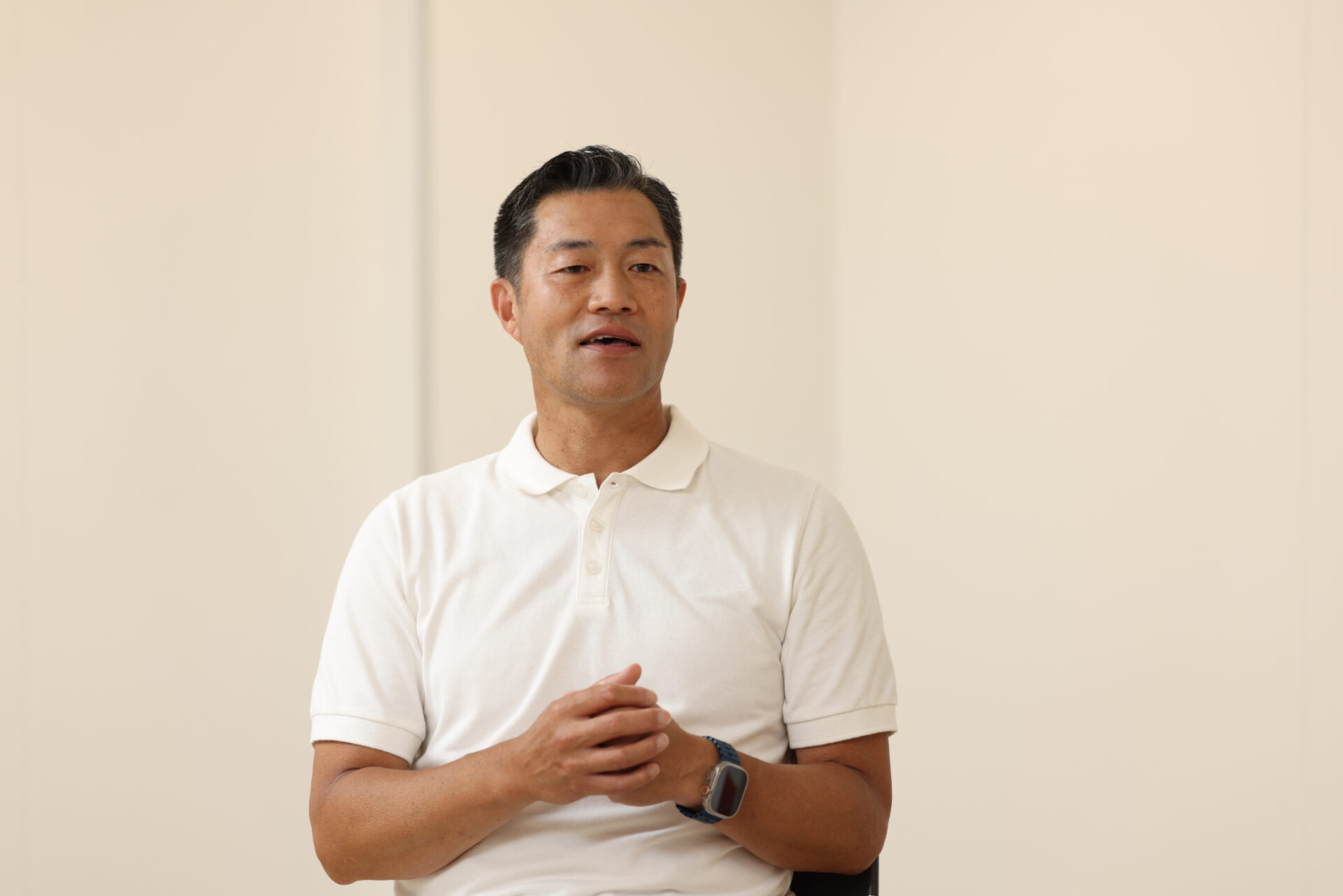
–What does the Tokyo Marathon mean to you, Race Director Oshima?
#MyTokyoMarathon is…?
The Tokyo Marathon is an event that can bring about a change in the way Japanese people view sports. I personally have a goal, too, which is to “raise the position and status of sports among people.” The reason for participating in sports depends on each person’s own motivations. For some they join sports for a fun time, or have sports as part of their lifestyle, or doing sports with clear health goals. As a human being, it goes without saying that the top priority is to live. Health is important to live, including richness in heart. For us to be able to truly enjoy and have a healthy economy we must be healthy, so in my mind, it is a foundation for us to do exercise and to play sports. That is what the Tokyo Marathon can do and we have been doing. The Tokyo Marathon can raise the position of sports among people as a “sport to watch,” and “sport to support,” and “sport to play,”. We can inspire people to unite and move and we would like to make this happen.
–How would you like to develop the Tokyo Marathon in the future? Or how do you foresee it developing?
Related to the previous question, as the position of sports grows among people, various demands will also arise. And in a society where everyone recognizes diversity and respects each other, sporting events will inevitably develop into something that society desires. This can be achieved through sports activities centered on the act of running and walking, and through the Tokyo Marathon. In order to fulfill various wishes for someone or for oneself, such as aiming for a world record, or trying to recover from an illness, an injury, or a disability, it is important to provide opportunities where as many people as possible can participate. To select a course where anyone can participate in, and to operate in a way that is easy to be part of. To achieve this, we will continue to make full use of technology. We also want events and activities that become memories and connecting with people’s hearts.
–Please share with us about any other thoughts about the Tokyo Marathon.
I know I’m repeating myself, but the Tokyo Marathon is actually an event without an end. Every year there is a temporary finish line at the 42.195 km mark, but for people and society involved, their stories continue even after they cross the finish line. It doesn’t end with “I’m glad I finished the race” or “I was moved by the volunteer work,” but rather, the story continues from there, heading towards the next goal. The Tokyo Marathon Foundation would like to continue to be a supporting character in each person’s story, playing a role as the icing on the cake for everyone who is the main character of the story. This is the Tokyo Marathon, and we hope to keep playing such a role for many years to come.




